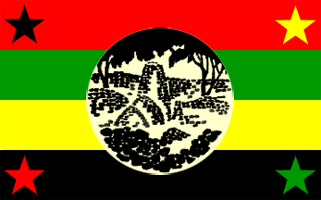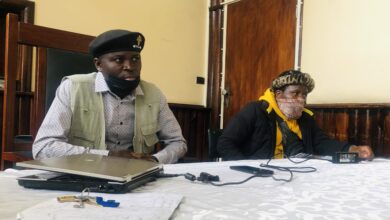Catholic bishops pastoral letter timely: ZAPU

Opposition ZAPU has said the Catholic bishops’ pastoral letter issued last Friday unreservedly condemning human rights abuses in Zimbabwe was timely.
Last week the Archbishop Robert Christopher Ndlovu-led Zimbabwe Catholic Bishops Conference (ZCBC) condemned the government’s crackdown on civil liberties, failure to resolve the issue of Gukurahundi massacres, state brutality on citizens and other related factors.
While the government through the Minister of Information, Publicity and Broadcasting Services, Monica Mutsvangwa, has responded by also lashing-out at the men of the cloth, the Zimbabwe Lawyers for Human Rights, Evangelical Fellowship of Zimbabwe and some rights groups have backed the bishops.
Also backing the clergy, ZAPU secretary-general, Strike Mkandla, said their message came at the right time.
“Your pastoral letter was timely in the wake of the mission sent by President Cyril Ramaphosa of South Africa to Zimbabwe which should have seen a wider cross section of people and organizations to facilitate resolution of our politically induced socio-economic crisis,” said Mkandla in a statement.
“Change of guard at the centre of power without deeply grounded change in accountability will not solve our problems. Indeed, “things fall apart, the centre cannot hold” couldn’t be more applicable to a situation where calls for change within and without are not tolerated.”
Mkandla said ZCBC’s promotion of a platform for the comprehensive national settlement framework proposal, the National Convergence Platform (NCP), was in line with some of the efforts made by their late president, Dr. Dumiso Dabengwa.
He said Dabengwa, with others tirelessly pushed for the National Transition Authority (NTA) working under the auspices of SAPES Trust to ensure a soft landing for change.
“These internal efforts complement what friendly countries in SADC and the African Union may propose and promote, as long as they go beyond the institutions that have failed to bring lasting change and instead become enjoined in a runaway crisis,” said Mkandla. “Consensus building and a convergence agenda based on citizen participation is an inescapable path to change.”
Mkandla added that the prevailing abuse of human rights and limiting of democratic space point to the continuing tendency for unprovoked use or misuse of force and power.
“There is remarkable continuity except in the colour of the wielders of the instruments,” he said.
“This is in spite of the great promise of the 2013 Constitution whose reform agenda has yet to be fully implemented. Justice and peace, free and fair elections, human rights and freedom of assembly, ending and preventing corruption, genuine devolution of power and other reforms clearly need to be tackled.”






